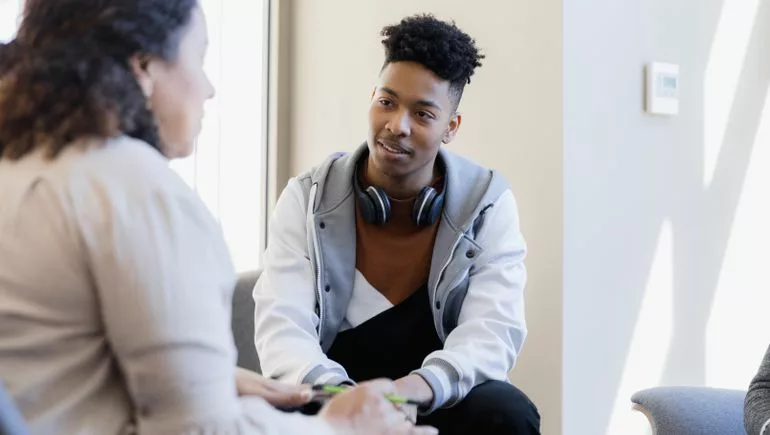[ad_1]
John MacPhee is CEO of The Jed Foundation, a nonprofit focused on protecting emotional health and preventing suicide for teens and young adults.
As a former Division I college basketball player, I struggled with mental health. Experiencing anxiety, depression and problem drinking, I blamed myself and failed to recognize this was a challenge that could be successfully addressed through awareness, resources and a supportive community.
While I never missed a game or practice and felt connected to my team, I spent the first two years in college struggling to balance academics with athletics, coming on and off academic probation, and eventually falling behind so much that I stopped attending classes. Afraid to lose my athletic community, which was strongly tied to my identity, I felt I couldn’t ask for help. I struggled in silence until my final semester grades arrived, and I was informed I’d have to leave school.
I assumed the lifestyle of a student-athlete was one I couldn’t balance efficiently rather than realizing its inherent difficulty. There’s a common misconception among professors and peers that college athletes are privileged students with little intelligence and full scholarships.

In reality, many work 35 hours a week while juggling education, extracurriculars and social lives. Additionally, other challenges have grown during COVID-19, with many student-athletes concerned about career planning as well as financial and food insecurity.
In fall 2021, 24% of male and 36% of female athletes “felt so depressed that it was difficult to function,” according to an annual survey from the NCAA. Unfortunately, athletes fear losing scholarships, playing time or even their degrees should they take a mental health leave or suffer an injury.
When I was a student in the 1980s, there weren’t well-organized systems on college campuses to identify struggling students. It wasn’t recognized that elite athletes may be more predisposed to depression than the general population and are more likely to participate in high-intensity drinking than non-student-athletes, raising their risk for alcohol-related injuries. Thankfully, as awareness rises for mental health support and well-being, colleges have become more proactive about offering stronger, tailored support for individuals, like student-athletes, who face additive psychological stressors.
But we can do more.
Colleges can take several actions to provide quality mental health care and a culture of caring for student-athletes.
First, colleges and universities should invest in hiring staff representative of the student body’s makeup. Despite the diversity of student-athletes, many don’t see themselves represented since most head coaches and athletic directors identify as White males. To successfully tackle mental health concerns, substance misuse, suicide, racism, homophobia and sexism, students need approachable mentors. Because women, LGBTQ students and people of color are the most likely student-athlete groups to report mental health concerns, it’s vital that coaches and athletic staff act as role models that they can identify with and feel comfortable approaching when challenges or concerns arise.
Second, athletic leadership — including athletic directors, coaches and trainers — should prioritize athlete mental health. They can begin by talking openly with athletes about mental health and letting them know it’s normal to struggle to balance workloads and athletics. They can also share that it’s safe to ask for support resources provided by the school, and they can take steps such as mental health screenings to notice if a student-athlete is struggling. Improved collaboration between athletic and counseling center directors is needed to implement comprehensive plans to support student-athletes’ mental health throughout their college experience.
Third, athletic departments should actively work to reduce stigma and barriers to help-seeking. Coaches and athletic staff are ideally positioned to do both by encouraging athletes to visit the college counseling center to check in on emotional well-being and address challenges that accompany being a student-athlete. Colleges can change the status quo and normalize mental health support by making resources accessible to students, allowing them to thrive in their personal, athletic and academic endeavors.
Ultimately, I was lucky enough to receive support from loved ones, the school administration and athletic staff that enabled me to obtain my degree. But it’s incumbent upon us as individuals, and our college system, to ensure student-athletes receive the support they need before they’re forced to leave school.
No individual should think they need to tackle the various pressures of being a student-athlete on their own. We can ensure that caring communities and support systems are ready to help.
[ad_2]
Source link
Meet Our Successful Graduates: Learn how our courses have propelled graduates into rewarding
careers. Explore their success stories here!
Discover More About Your Future: Interested in advancing your teaching career? Explore our
IPGCE, MA, and QTS courses today!


